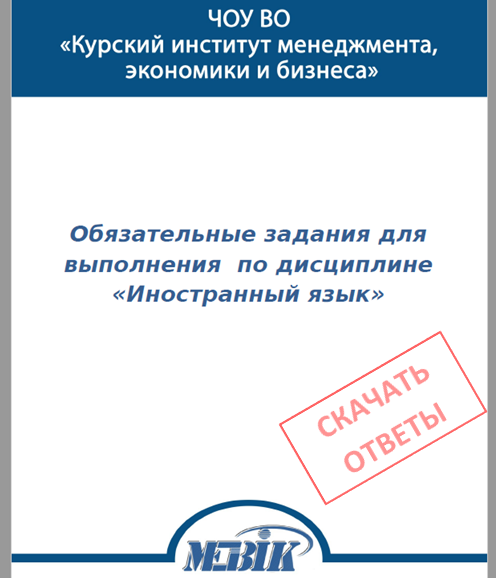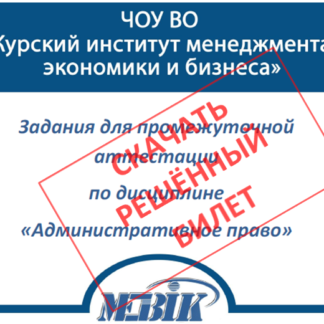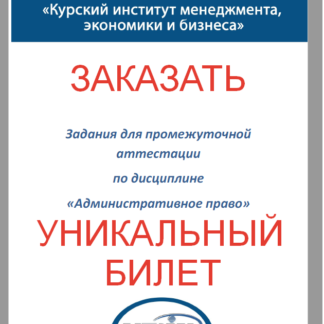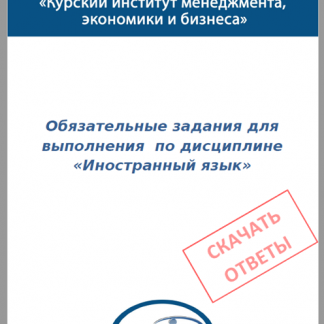Описание
LANGUAGES OF THE WORLD
1. Nobody knows what the first language was. But scientists feel sure that nobody speaks it today because all languages change and keep on changing as long as people use them. One language may change in different ways in different places and grow into several languages.
2. If we could meet the people who spoke English five hundred years ago, we probably couldn’t understand much what they said.
3. English itself is a mixture of several languages. Scientists believe that these languages and many others all grew out of the same language which they call Indo-European. Nobody speaks it now. But some of its descendants are Latin, German, English, French, Greek, Russian and many of the different languages spoken in India.
4. Britain and America were once described as nations divided by a common language. Just what is difference between the English spoken in Britain and America?
5. The first English settlers to reach America arrived in Virginia in 1607 and in Massachusetts in 1620. They all spoke English of the early seventeenth century — the language of Shakespeare and Milton. Most of them came originally from the south and south-east of England. Although some of them had spent some years of exile in Holland they spoke with the accents of the southern part of their home country. To a large extent they kept that form of speech, but they soon learned to give old words new uses. They also took words from the local Indian languages for plants and animals that were new to them.
6. Until the Declaration of Independence in 1776 over two-thirds of the settlers in what later became the U.S. came from England. After that date many other people came to make a new life for themselves in the New World. These included Irish, French, Germans, Dutch, Italians, Slavs, and Scandinavians. All these people gave new words to the language of North America. The Negroes who had been taken from Africa as slaves to work on the rice and cotton plantations added words and structures from their own native languages. Some people today think that the very American expression O.K. comes from a similar expression which was brought to America by the Negroes.
7. All these people contributed in various ways to the language which was to become American English. Most civilizations and cultures — in their writings, traditions, folk stories — have traces of the old language.
Примечания к тексту
1. feelsurethat … полностью уверены, что…
2. keep on changing продолжают изменяться
3. just what так что же
4. in what later became the U.S. которые позднее вошли в состав
США
EXERCISES.
- Найдите в тексте антонимы к следующим словам:
different, last, leave, nobody, north, small, new, give, dependence, few, exclude, therefore.
- В колонке В найдите русские эквиваленты к английским словам в колонке А.
А В
because в большой степени
пока
| aslongas | так как |
| aswellas | хотя |
| someof | так же как, а также |
| once | между |
| as | некоторые из |
| between | когда-то |
| although | как |
| to a largeextent | что |
- Переведите письменно следующие предложения из текста, обращая внимание на сказуемые в пассивном залоге.
Britain and America were once described as nations divided by a common language.
The Negroes who had been taken from Africa as slaves added words and structures from their own native languages.
Some people think that the very expression O.K. comes from a similar expression which was brought to America by the Negroes.
- Дайте развернутый ответ на вопросы по тексту.
1. Do people in Britain and America speak the same language?
2. What words did the first English settlers take from local Indian languages?
3. What peoples gave new words to the language of North America after 1776?
4. What is English now?
VOCABULARY.
| Change use several probably describe difference settler trace until reach arrive originally spend (spent) exile extent keep (kept) keepon include slave bring (brought) scientist language sure descendant grow (grew, grown) way | изменение; изменяться использовать
несколько вероятно описывать отличие поселенец след до тех пор, пока (не) достигать прибывать, приезжать первоначально проводить (время) ссылка, изгнание степень сохранять продолжать включать раб приносить, привозить ученый язык уверенный потомок расти; увеличиваться дорога; путь, способ |
MAN AND THE ENVIRONMENT
1.The environment situation is known to have long been a subject of separate and joint research efforts by specialists of interrelated fields – biologists, chemists, biochemists and others who have to combine their knowledge with the information available to specialists in physics, geology, oceanography and meteorology, or to the experts in sociology, psychology, philosophy, etc. The problem of man and his interaction with the environment has now become the
focal point for many sciences not because it is fashionable but because of its great significance for the whole of mankind.
2.Scientific exchanges and discussions are sure to be always useful because they contribute to general scientific advance. Many Western scientists say our world to be through a global ecological crisis which means the gradual destruction
of the human race. Russian scientists are not so pessimistic but they do think that man′s intervention in nature is steadily increasing, which is a growing threat to the environment. The very term “crisis” is not quite accurate. What we see at present
are signs of ecological imbalance which may cause a crisis if due measures are not taken. The air we breathe, the earth we live on and its rivers and seas are becoming polluted with ever more dangerous materials — the by-products of Man′s activities.
3.Interrelations between man and the biosphere are of a very complex nature. Man, like every other living organism, depends for his life on what the biosphere provides: water, oxygen, food, etc. On the other hand, the biosphere is reported to be strongly affected by all sorts of human activities. The conflicts that arise in this man-and-the environment interaction are different. For example, man creates new compounds, new substances, pure chemical elements which are unknown to the biosphere. They do not belong to the natural cycle of matter, therefore they weaken the capacity of natural complexes for self-regulation. Thus, though not changing biologically, we change the medium we live in.
4.Forests are disappearing. Deserts are advancing at the same speed and, if there are qualitative changes in the biosphere, it is supposed not any longer to correspond to the biological requirements of man, whose ability to adapt is very limited.
5.The great scientist Vladimir Vernadsky was the first to realize the necessity for quite a new approach to the biosphere as early as the mid-forties. It is Vernadsky′s concept of the biosphere that we accept today.
6.That we must act now is clear. If your house is in order, you′re all right.
Примечания к тексту:
- buttheydothink но они все же считают
- evermoredangerous
- ontheotherhand
- it is Vernadsky’s concept that
II. EXERCISES
Найдите в тексте антонимы к следующим словам:
optimistic, decrease, relative, past, balance, simple, joint, death, compromise, same, artificial, because, strengthen.
- Найдите русские эквиваленты в колонке В к английским словам из колонки А.
| A | B |
| because | через |
| becauseof | потому что |
| through | сам; как таковой |
| very | должный |
| quite | как и |
| due | таким образом |
| like | поэтому |
| therefore | хотя |
| thus из-за |
| though |
| совсем |
- Переведите следующие словосочетания из текста, обращая внимание на подчеркнутые слова. Постарайтесь подобрать самый подходящий вариант их перевода.
information available to specialists
forthe who lemankind
general scientific advance
man’s intervention in nature
the very term “crisis”
signsof ecological imbalance
may cause a crisis
the by-products of Man’s activities
like other living organisms
to realize the necessity
- Переведите письменно следующие сложные предложения из текста, обращая внимание на тип придаточного. Помните, что в некоторых случаях союз, вводящий придаточные предложения, опускается.
1. What we see at present are signs of ecological imbalance.
2. The air we breathe, the earth we live on are becoming polluted.
3. Man depends for his life on what the biosphere provides.
4. We change the medium we live in.
5. That we must act now is clear.
7. Придумайте и запишите два вопроса, ответом на которые может служить абзац 2.
| III.VOCABULARY. | |
| Environment subject joint effort interrelate available interaction fashionable significance contribute gradual steadily threat | окружающая среда
предмет, тема совместный усилие взаимосвязывать(ся) имеющийся в наличии, доступный взаимодействие модный значимость способствовать, делать вклад постепенный постоянно угроза |
| cause | вызывать, быть причиной |
| measure breathe pollute dangerous by-product nature
provide depend affect arise (arose, arisen) create compound matter weaken medium |
мера
дышать загрязнять опасный побочный продукт природа, характер обеспечивать, предоставлять зависеть воздействовать, влиять возникать создавать соединение материя, вещество ослаблять среда |
| suppose correspond realize
accept |
предполагать
соответствовать, отвечать (требованиям и т.д.) осознать, понять принимать, соглашаться |




